HOPE ON EARTH
A CONVERSATION
PAUL R. EHRLICH & MICHAEL CHARLES TOBIAS
with additional comments by John Harte
The University of Chicago Press
Chicago and London
PAUL R. EHRLICH is the Bing Professor of Population Studies and the president of the Center for Conservation Biology at Stanford University. He is the author or coauthor of many books, including The Population Bomb; The Dominant Animal: Human Evolution and the Environment; and Humanity on a Tightrope: Thoughts on Empathy, Family, and Big Changes for a Viable Future.
MICHAEL CHARLES TOBIAS is an ecologist, author, filmmaker, and president of the Dancing Star Foundation, a nonprofit organization based in California and focused on international biodiversity conservation, global environmental education, and animal protection. His works include World War III: Population and the Biosphere at the End of the Millennium; Sanctuary: Global Oases of Innocence; and the recent feature-film trilogy No Vacancy, Mad Cowboy, and Hotspots.
The University of Chicago Press, Chicago 60637
The University of Chicago Press, Ltd., London
2014 by The University of Chicago
All rights reserved. Published 2014.
Printed in the United States of America
23 22 21 20 19 18 17 16 15 14 1 2 3 4 5
ISBN-13: 978-0-226-11368-5 (cloth)
ISBN-13: 978-0-226-11371-5 (e-book)
DOI: 10.7208/chicago/9780226113715.001.0001
Library of Congress Cataloging-in-Publication Data
Hope on Earth: a conversation / Paul R. Ehrlich & Michael Charles Tobias; with additional comments by John Harte.
pages; cm
Includes bibliographical references.
ISBN 978-0-226-11368-5 (cloth: alk. paper) ISBN 978-0-226-11371-5 (e-book)
1. Ecology. 2. Environmental ethics. 3. Global environmental change. 4. Nature conservation. I. Ehrlich, Paul R. II. Tobias, Michael. III. Harte, John, 1939
QH541.145.H665 2014
577dc23
2013035831
 This paper meets the requirements of ANSI/NISOZ39.48-1992 (Permanence of Paper).
This paper meets the requirements of ANSI/NISOZ39.48-1992 (Permanence of Paper).
CONTENTS
PRELUDE
Amid melting snowfields, a profusion of colorful butterflies and other pollinators, and a riotous display of wildflowers, native and non-native to the Rockies, Paul R. Ehrlich and Michael Charles Tobias met for a couple of days at the Rocky Mountain Biological Laboratory in the mountains above Crested Butte, Colorado, to hike together and discuss the fate of the world. They focused on the ethical ambiguities and underpinnings whose topical urgency could generate many encyclopedias of data and analyses, and discussed some of the research being done to further understanding of biological dimensions of the human predicament. However, this modest volume, Hope on Earth, is intended to be a reflection only upon those points of view, and conceptual, scientific, and ethical opinions that were first discussed on those mountain hikes, and which continued for the year to follow.

Gothic, Colorado, site of Rocky Mountain Biological Laboratory. M. C. Tobias
The end resultgrowing out of a year of subsequent additions to the book, reflecting, in part, world eventsis presented here. Given the dynamism of all of these topics, this book is but a snapshotan incomplete document of feelings, opinions, and priorities. It is our joint attempt to add nuance, candor, and personality to topics that all too often are limited to the podium and other conventional public forums or, worse yet, not included in public discourse. We hope through this format that we will inspire you, our readers, to pick up threads of the conversation and carry them far and wide.
ETHICAL AMBIGUITIES
HUMAN HEGEMONY: THE ONE VERSUS THE MANY

Shoppers in Shanghai. M. C. Tobias
MICHAEL TOBIAS,hereafterMT: Looking up at those cliffs and talus slopes, waterfalls and snowfields, with the fair breeze of a high-altitude Colorado summery morning, with the birds singing and our local world carpeted by gorgeous flowers and adrift with attendant butterflies, there would hardly seem to be any justification for griping. Were in paradise at nearly 10,000 feet.
But we are also in global hell, up against some incredibly high stakesnothing short of the fate of the Earth. What are the core issues of the conscience, activism, and idealism that underlieas well as those undoing, undermining, and confusingthe debate about animal rights, biological conservation, and the stakes for the future of life on Earth? Thats what is thoroughly nagging at my scientific and intuitive clockwork.
Pursuing that direction, let me say that one of the underlying premises that I hear constantly from committed individuals of the conservation biology world and of the animal rights, animal protection, and animal welfare worlds (all of whom are in some form of slight or radical disagreement over levels of protection) is as follows: If you focus in your own personal life upon saving individuals, thats going to be about as much as you can do. Applying your knowledge, experience, skills, data sets, and compassion to an individual who needs you is all-encompassing, typically exhausting, and, yes, usually deeply rewarding. But it is not going to provide you much energy or time for field research that would give you the information needed to help save populations or even whole species. Its not that saving an individual is fundamentally different than saving an entire speciesbut, in truth, it is, and we all know it.
It is an ancient Greek paradox that Plato elaborated upon in his dialogue Parmenides, which weighed in on the great Eleatic meeting of Parmenides and Zeno and their debate regarding this one versus the many. Of course, humanity has grappled with the dialectic ever since. Were still in the throes of it, by all appearances.
PAUL EHRLICH,hereafterPE: This reminds me of the efforts made on behalf of the oiled birds during the BP Deepwater Horizon Gulf disaster. You just could not save them all. And it is an even more difficult problem when the issue is which of many species to save, which is increasingly the case. And this obvious but intractable dilemma is not unlike the paramedics paradox of World War I that poet e. e. cummings experienced as a volunteer ambulance driver on the front: Whom do you save? How do you determine and justify the candidates for triage? And that dilemma becomes even more horrible when one considers that today we are already triaging human populations (who gets fancy cars and clean water versus whose children must walk far to gather firewood and could die of waterborne diseases), and that situation is likely to get much worse.
MT: Precisely. I viewed the HBO documentary Saving Pelican 895, which shows efforts to save what avifauna could be spared, but at least 7,000 birds died following that April 2010 British Petroleum oil spill. Im sure that the numbers are going to escalate as more and more biological opinions come in over the years. The 2012 book by Antonia Juhasz, Black Tide: The Devastating Impact of the Gulf Oil Spill, chronicles, under the Freedom of Information Act, countless health problems, both for wildlife and humans, in particular assessing reports from the Joint Unified Command Center in Houma, Louisiana, and those of the U.S. Coast Guard.
Next page

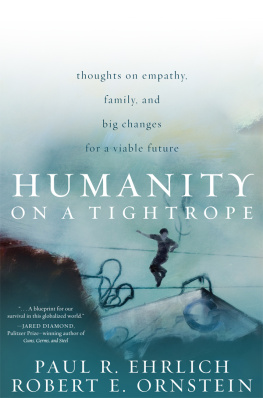

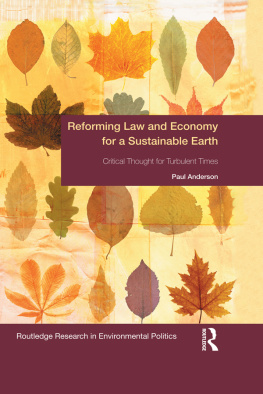
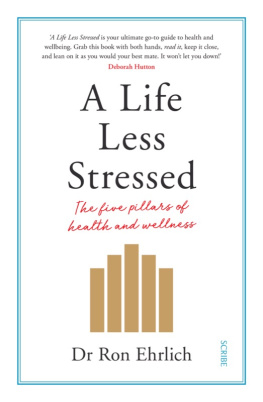
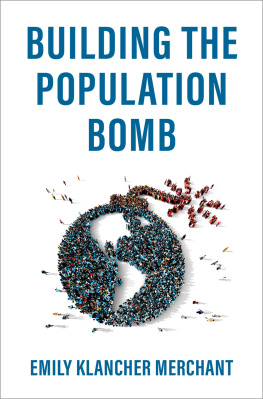
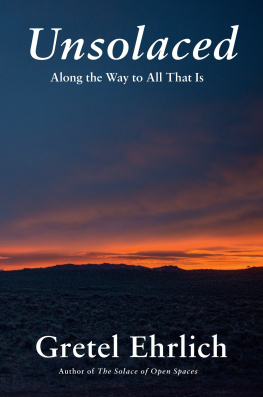
 This paper meets the requirements of ANSI/NISOZ39.48-1992 (Permanence of Paper).
This paper meets the requirements of ANSI/NISOZ39.48-1992 (Permanence of Paper).
